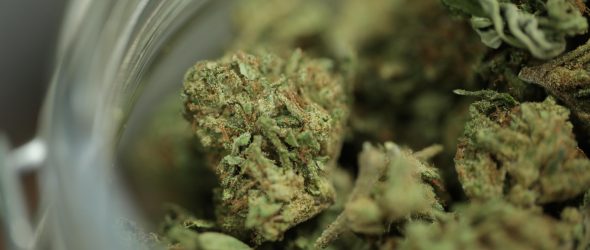If Dallas City Council member Adam Bazaldua gets his way, people in Dallas will be able to possess less than 2 ounces of marijuana without the worry of being cited or arrested by Dallas police. Next month, Bazaldua intends to propose the “decriminalization” of low-level marijuana possession in the city.
That’s a bit of misnomer. State law makes possession of marijuana illegal, and that’s an issue for the Texas Legislature. What Bazaldua proposes is simply ordering the city’s cops to stop citing or arresting people for possession of small amounts.
Caught by a deputy sheriff, constable, state trooper? Cross a boundary into a suburb? That could be an unpleasant way to learn about the difference between decriminalizing weed and changing one police department’s policy. Caveat toker.
The council adopted a cite-and-release program in 2017 that allowed officers at their own discretion to issue misdemeanor tickets to anyone caught with 4 ounces or less of cannabis. Turns out that officers’ discretion, not surprisingly, runs toward tossing the people they arrest into jail, as Dallas cops are still most often booking those they arrest for simple possession instead of writing a ticket.
Dallas County District Attorney John Creuzot, meanwhile, has adopted a policy of not filing minor weed cases against anyone with a clean record and no other charges against them.
Bazaldua’s plan is to change the Dallas Police Department’s general orders to prohibit officers from making these arrests. The proposal is an attempt to address racial disparities in marijuana enforcement and ensure that the police department is using its resources most efficiently.
Over the last five years, more than 90% of Dallas pot arrests involved Black and Hispanic people, according to The Dallas Morning News. The Observer reported in 2018 that just eight months into cite-and-release, the few offenders receiving tickets were still mostly Black or Latino and arrested in southern Dallas.
“All criminal justice reform does not require budget actions,” Bazaldua said. “We have the opportunity to not only address systemic racism in our country but also assist in our efforts toward a more efficient police department.”
Dallas Police Association President Mike Mata says he doesn’t care whether people smoke pot (as long as they’re not driving, at least) and he thinks this is true for most officers. But, he is not a fan of Bazaldua’s proposal and doesn’t believe it will relieve pressure on local law enforcement.
“I think [Bazaldua] needs to stop masquerading it as a way to lessen police overtime. It has nothing to do with police overtime,” Mata says. “It takes no more time to arrest somebody for a misdemeanor marijuana charge than it does to arrest somebody for vandalism or theft.”
Many of these arrests happen during traffic stops, Mata says, which indicates to him that these individuals are driving while under the influence. He says to not make these arrests would be sending the message that it’s OK to drive while high.
Mata says decriminalization should be decided at the state level. “If you’re attempting to legalize marijuana, then just do that,” he says. “Don’t try to circumvent the law with a city ordinance.”
But Bazaldua says he is doing what he can to address marijuana reform at the local level.
Bazaldua’s announcement came the day before national lawmakers and pot reform advocates met virtually to discuss the Marijuana Opportunity, Reinvestment and Expungement (MORE) Act, a bill that would decriminalize marijuana at the federal level, allowing the drug to be regulated similarly to tobacco. The bill is set for a House vote next week, according to congress.gov.
Mata says he thinks national or statewide legalization or decriminalization would benefit police departments because it would give them one less thing to worry about, but he doesn’t believe it will put a huge dent in the problems facing law enforcement today.
More than half of the states in the country have legalized pot in some fashion. If Bazaldua’s proposal passes, Dallas would be following a trend set by Austin and other Texas cities that have stopped arresting people for low-level possession.
Between federal, state and local efforts to change marijuana laws, the walls are closing in on the criminalization of the drug. But for Bazaldua, his proposal is bigger than just decriminalizing pot. He wants this initiative to open people’s minds to different ways to go about law enforcement reform.
“My hope is that this can be one of the starting pieces of policy that we put forth that can bring all stakeholders to the table to find what is an agreeable ground to use policy as a tool so the focal point doesn’t have to only be about dollar signs,” Bazaldua says.


